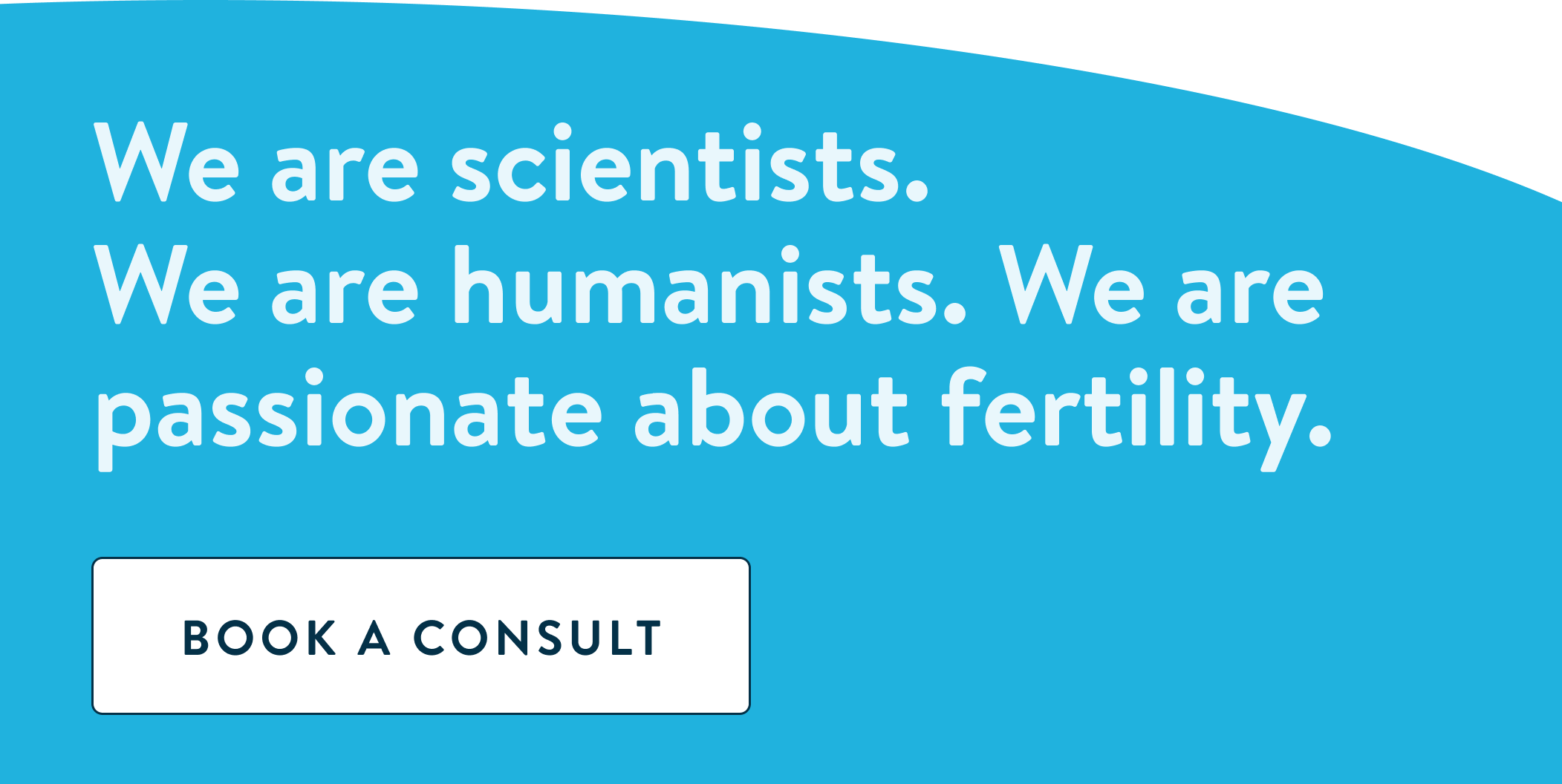
What to Know About Egg Donation: Why to Become an Egg Donor
If you are interested in learning about egg donation or are considering becoming an egg donor, we’re here to tell you everything you need to know!
Egg donation is a medical process where an individual with ovaries donates a number of their own eggs via ovarian stimulation and a subsequent egg retrieval (the same process as egg freezing) to help another individual or couple who cannot use their own eggs (or does not have any) conceive a child. It is a family-building option for those facing fertility challenges, as well as for members of the LGTBQ+ community. Understanding the intricacies of egg donation, including who uses donor eggs, the process and timeline involved for donating your eggs, and the reasons to consider becoming an egg donor, can demystify this compassionate act and help highlight its significance as a third party reproductive technology.
Who Do Donor Eggs Support?
Egg donation typically supports individuals and couples experiencing infertility, including those with medical conditions affecting egg quality or quantity, women who have undergone treatments that compromised their fertility, and same-sex male couples who require an egg donor to conceive with the help of a surrogate.
- Couples With Fertility Diagnoses: Couples struggling with infertility often turn to egg donation after other treatments, such as in vitro fertilization (IVF) using their own eggs, have proven unsuccessful and they’ve discussed alternative options with their fertility provider. Conditions like premature ovarian failure, diminished ovarian reserve, age-related infertility, or genetic disorders may lead them to seek out healthy donor eggs to help build their families.
- Women with Medical Conditions Preventing Them From Using Their Own Eggs: Women who have undergone chemotherapy or radiation treatments for cancer or those with certain genetic conditions may find their egg supply diminished or non-viable, necessitating the use of donor eggs for successful conception.
- Same-Sex Couples and Single Men: Male same-sex couples and single men who wish to become parents require egg donors and surrogates to conceive children. Egg donation provides these individuals the chance to have biological offspring.
The Egg Donation Process
The egg donation process is thorough and involves several steps to ensure the health and well-being of both the donor and the intended parent(s). Here is a breakdown of the typical process:
- Application and Screening: Potential donors undergo a rigorous screening process that includes medical evaluations, psychological assessments, and genetic testing. The medical evaluations will include ovarian reserve testing, to understand how many eggs the donor could produce in a given cycle. This ensures the donor is physically and mentally healthy and that her eggs are viable for donation with the greatest chance of successful outcomes for the intended parents. At Nest Cryobank, Spring Fertility’s in-house frozen egg bank, donors are highly motivated women ages 21-30 who are in overall good health and are non-smokers. Only about 3% of all donor applicants are ultimately approved for egg donation!
- Ovarian Stimulation: Once approved for egg donation, the donor begins a cycle of ovarian stimulation, which is about a two-week process. This involves daily hormone injections to stimulate the ovaries to grow multiple eggs (a number dependent upon the donor’s ovarian reserve). The donor is closely monitored by a fertility specialist with blood tests and ultrasounds during this phase to ensure the process is progressing safely and effectively.
- Egg Retrieval: When the eggs are mature, a minor surgical procedure called egg retrieval is performed. This is performed under general anesthesia and involves using a needle to extract the mature eggs from the follicles in the ovaries - there is no scarring, and the procedure takes about 20 minutes in total.
- Post-Retrieval Recovery: After the retrieval, donors may experience mild discomfort or bloating, but these symptoms usually subside within a few days. Rest, salty foods, and hydrating with electrolyte-rich fluids Follow-up appointments ensure the donor's health is monitored until she has fully recovered.
At Nest, egg donors are allowed to donate their eggs a maximum of 6 egg cycles, to protect the health of the donor. It’s important to note that egg donation and egg retrieval does not impact your future fertility, or “dip into” your overall egg supply.
Reasons to Consider Donating Your Eggs
- Helping Others Achieve Their Dreams of Parenthood: One of the most compelling reasons to donate eggs is the profound impact it has on recipients. By donating your eggs, you provide an invaluable gift to those who might otherwise be unable to conceive, allowing them to experience the joy of parenthood.
- Financial Compensation: Egg donation is a compensated process, with donors receiving significant financial remuneration for their time, effort, and commitment. This compensation can help donors achieve personal financial goals, such as paying off student loans, funding education, or saving for future endeavors.
- Personal Fulfillment: Many egg donors find the experience deeply fulfilling, knowing they have made a significant difference in someone else's life. The altruistic aspect of egg donation can bring a sense of purpose and pride, knowing your contribution has created a lasting impact.
- Desire to Freeze Eggs for Your Own Future Use: Nest Cryobank works with Spring Fertility to offer an egg share program, where you can donate eggs from one ovarian stimulation and egg retrieval cycle, and then undergo a second cycle for free and keep the eggs from that retrieval for your own future use.
- Comprehensive Health Screenings: The thorough medical evaluations and screenings involved in the egg donation process can provide donors with valuable insights into their own health and fertility. This information can be beneficial for future family planning and overall health awareness.
- Advancing Medical Science: Egg donation also contributes to scientific research and advancements in reproductive medicine. Donors play a crucial role in helping medical professionals understand fertility better and improve treatments for future patients.
